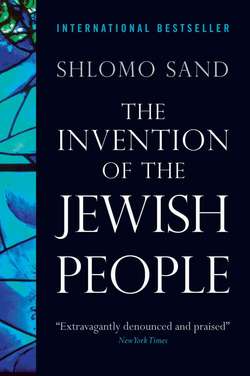Читать книгу The Invention of the Jewish People - Shlomo Sand - Страница 17
На сайте Литреса книга снята с продажи.
CHAPTER TWO Mythistory: In the Beginning, God Created the People
ОглавлениеFrom what has been said, it is thus clearer than the sun at noonday that the Pentateuch was not written by Moses, but by someone who lived long after Moses.
—Baruch Spinoza, A Theologico-Political Treatise, 1670
The Land of Israel was the birthplace of the Jewish people. Here their spiritual, religious and political identity was shaped. Here they first attained to statehood, created cultural values of national and universal significance and gave to the world the eternal Book of Books.
— The Declaration of the Establishment of the State of Israel, May 14, 1948
Antiquities of the Jews, the fascinating work by Flavius Josephus, was written in the late first century ce. It may be the first work by a known author who sought to reconstruct a general history of the Jews—or, more precisely, Judeans—from their “beginning” to his own time.1 Josephus was a Hellenized Jew and a believer, and boasted he was of the chosen “priestly seed.” So he opened his book with the words: “In the beginning God created the heaven and the earth. But when the earth did not come into sight, but was covered with thick darkness, and a wind moved upon its surface, God commanded that there should be light … And this was indeed the first day. But Moses said it was one day.”2
The ancient historian was certain that the Pentateuch (the first five books of the Old Testament) was dictated by God to Moses, and he took for granted that the history of the Hebrews and Judeans ought to start with the creation of the world, since this was how the Scriptures present it. The Scriptures, therefore, served as his only source for the opening of his work. Josephus tried now and then to bring in other sources to add verisimilitude to his history, but with little effect. From the story of the Creation through the appearance of Abraham the Hebrew and the Exodus from Egypt to the adventures of the pious Esther, he copied the biblical tales without commentary or doubt, except for some noticeable stylistic changes and a small number of tactical additions and deletions. Only in the final part of Josephus’s work, when the historian proceeded to relate the story of the Judeans following the end of the biblical narrative, did he resort to more secular sources, which he strenuously adapted so as to create a continuous, coherent narrative.
The believing Jewish author at the end of the first century CE deemed it reasonable to investigate the genealogy of his Jewish contemporaries for the history of Adam and Eve and their offspring, as well as the story of the Deluge and Noah’s ark. He continued to intertwine God’s actions with the deeds of men, without any separation or mediation. He openly glorified the Judeans by describing their origin from earliest times—antiquity being a virtue in Rome—and mostly praised their religious laws and the omnipotent deity that guided them. Josephus lived in Rome, but he felt at his back the wind of monotheism blowing into the cultural halls of the great pagan world, and it impelled his missionarizing writing. Ancient history, as he copied it from the Old Testament, was to him above all an “exemplary philosophy,” as defined by the Greek historian Dionysus of Halicarnassus, whose writing on the antiquities of the Romans served the Jewish historian as a model.3
The ancient myths were still pervasive in the first century, and the human deeds related in them could be seasoned with otherworldly events. At the beginning of the nationalist era in our time, however, there was a remarkable realignment. Divinity was kicked off its pedestal; thenceforth, truth came to be confined to the biblical stories that dealt with the deeds of humanity. But how did it happen that the miraculous works of Providence were suddenly rejected as untrue, while the human story that was closely intertwined with them was upheld as historical fact?
It should be remembered that the distilled biblical “truth” was not a universal narrative about the history of humanity, but the story of a sacred people whom a secularized modern reading turned into the first nation in human history.
